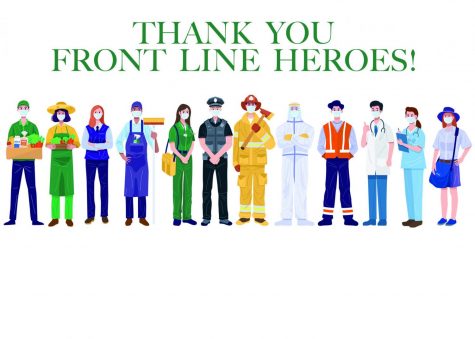Passion vs. Pay: Should you follow your dreams or go for a job that pays
In society today, people are surrounded by success stories, and it seems everyone is living the dream. From the dazzling Olympic Games, to the rolling red carpet, to the 100 yards of lush football field seen during the Super Bowl, everyone seems to have found their purpose. With sayings like “just do it” and “you only live once,” there is an ever increasing pressure to live a life filled with passion and legitimized by purpose. However, is this possible when passion is not mirrored by actual demand? Realistically, not every person can be the next Justin Bieber, Benedict Cumberbatch, or Payton Manning. In this case, one must contemplate, can I live the dream? Can every person out there live the best life possible and be happy? Every new generation of workers, like all generations before, will have to learn to navigate the elusive “happy medium” between a higher paycheck and a sense of fulfillment within their occupation.
When discussing the issue, some advise not to force a dream to become the main source of income. J. Maureen Henderson, a Forbes.com contributor specializing in early career development said, “You might love X, but if the market doesn’t value these activities as highly as you do, you either have to fight the uphill battle of creating demand, pare down your lifestyle until you can afford to live on what you can get paid, or accept that your passion is not suitable for paying bills.”
Henderson is referring to the gap between people’s passion and societies’ demands. A recent TIME study released two surveys in which participants were to rank careers based on job satisfaction and professions in high demand. The conclusion: very few careers ranked high on both lists. The jobs with the highest demand were those which deal with numbers, money, or computers while the jobs with the highest satisfaction were those that are people oriented. Henderson said, “Blessed are those who swoon at the thought of tax accounting or petroleum engineering, for they will be well-compensated for their love,” and as for everyone else, she recommends, instead of following dreams outright, adopt a career path that will generate enough profit to allow for indulgence in one’s hobby of choice, without forcing the passion to pay.
This way, the lines between passion and work are never blurred: sometimes, when passion melds with work, passion loses its shimmer. When there is enough money to go around, one can essentially follow their dreams.
Still, there is the old cliché, “Money can’t buy happiness,” which has earned it ubiquitous use through reoccurring truth behind the words. As the TIME study revealed, people enjoy a job where they feel they make the greatest impact. Firefighting ranked the highest in the job satisfaction category. While firefighting as a career will likely not yield a billion dollars a year, when the day is over, the people feel they have truly made an impact.
Based on this, some believe that following one’s dreams is a part of fulfilling life. Kelly Walsh counselor Deb Slensker said, “Follow your heart, follow your passions, and have a highly employable back up plan that is skills related.”
Adequate planning is necessary to avoid failure in the endeavor to conquer dreams. Amanda Saylors, a Kelly Walsh counselor, recommends beginning the planning process by scheduling a job shadow. Saylors said, “Sometimes when kids participate in job shadows, they realize the job is not all that they thought it would be.”
After determining whether or not the chosen job is the right fit, do research to decide whether the job can provide necessary support. If not, look into ways to double up or mix it up. Malonye Sanger, a Data Informationalist at Kelly Walsh, says the way to blend jobs is unique to every individual. Sanger said, “There are all kinds of reasons for every person to strive to include job stability within the pathway of their dreams.”
This could mean holding two jobs, or combining two different professions to better serve clients, or any sort of arrangement. In short, there are ways to make passion fit into the picture. In the end, one must contemplate their own lifestyle: is the goal in life is to be able to make enough money to enjoy all the luxuries of life in free time, or does knowing no bounds between work and play take the cake? Careers evolve and people evolve alongside them. If the career chosen defines the person, it is the biggest decision. But if the person maintains happiness within themselves, the influence is minimal. As Dorothy once said upon returning home from her dream-chasing journey, “If I ever go looking for my heart’s desire again, I won’t look any further than my own back yard. Because if it isn’t there, I never really lost it to begin with.”











